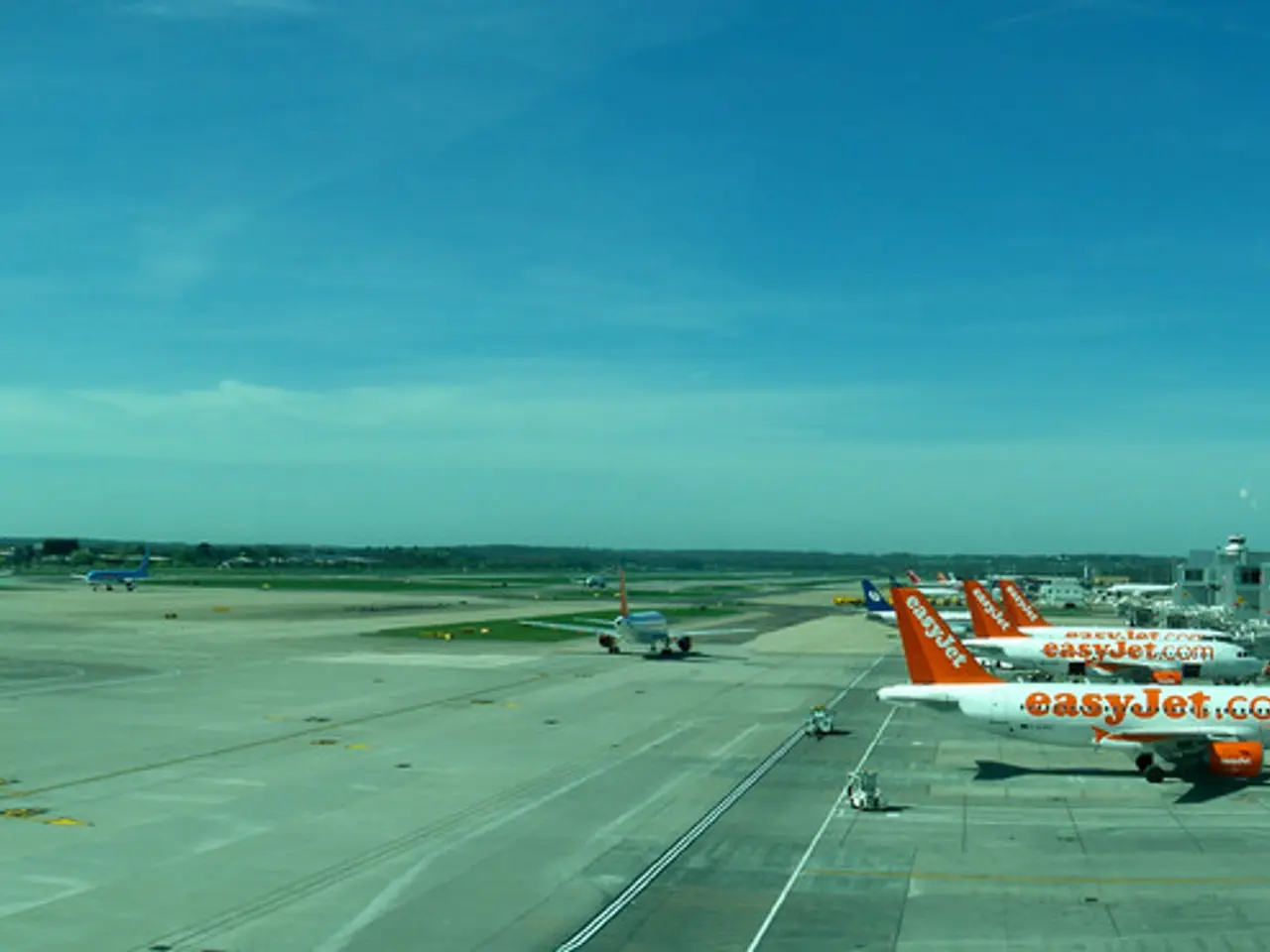Portugal Suffers Heavily from Sixth-Highest Strike Impact
Europe's airspace governance is under scrutiny following a series of recent flight delays and cancellations, with Spain and France leading the list of affected countries. Anton Radchenko, an aviation expert, has emphasized the need for urgent questions about the management of European airspace and the protection of passengers.
Currently, the European Network Operations Plan 2025, managed by Eurocontrol, coordinates national requirements and removes airspace restrictions, aiming to manage and streamline air traffic operations across Europe. The European Aviation Safety Agency (EASA) also provides guidelines and regulations for various aspects of aviation, ensuring safety and efficiency in European airspace. Acceptable Means of Compliance (AMC) and Guidance Material (GM) published by EASA provide detailed guidance on implementing safety standards.
To address the current challenges, several suggestions have been proposed. Improved communication and coordination between airlines, airports, and air navigation service providers (ANSPs) can help predict and manage disruptions more effectively. Platforms like the Ad hoc Enlarged NDOP Recovery Cell could be further enhanced to facilitate coordination among stakeholders.
Streamlined dispute resolution mechanisms are another key area of focus. Developing robust mechanisms for resolving labor disputes quickly can reduce the impact of strikes on air travel. Governments and regulatory bodies should engage in proactive dialogue with unions to address grievances before they escalate into widespread disruptions.
Investment in Sustainable Aviation Fuels (SAF) is another crucial aspect. Promoting the use of SAF can contribute to sustainability goals, reduce reliance on traditional fuels, and potentially mitigate operational costs and risks associated with fuel price volatility. Regulatory support for SAF adoption is essential for the aviation sector's long-term sustainability and resilience.
Modernization of airspace management is another important step. Implementing modern air traffic management systems can enhance efficiency and reduce congestion, which in turn can help mitigate the effects of disruptions. The UK's airspace modernisation strategy, focusing on efficient use of airspace and adapting to future demands, serves as a model for such efforts.
Enhanced passenger rights protections are also necessary. Strengthening passenger rights legislation can ensure that passengers are adequately protected during disruptions, including timely compensation and clear communication about flight status and alternatives. Efficient complaint resolution processes should be in place to address passenger grievances promptly.
In conclusion, harmonizing European airspace governance requires a multi-faceted approach that includes improved coordination, streamlined dispute resolution, technological modernization, and enhanced passenger protections. By addressing these areas, Europe can better manage disruptions and protect passenger rights.
Looking ahead, the European Commission's Sustainable Transport Investment Plan is expected to focus on sustainable initiatives, which could include measures to support the modernization of air traffic systems and sustainable aviation fuels. Accelerating policy action on SAF is also crucial, as the aviation sector calls for rapid support to adopt SAF, which could play a significant role in future air travel resilience.
The recent disruptions have had significant impact, with approximately 200,000 passengers unable to travel as scheduled due to cancellations, over 60,000 tons of additional CO2 emitted in just two days due to rerouting, and financial losses estimated at €120 million in costs due to delays and cancellations across Europe. More than one million passengers were directly affected by the disruptions, highlighting the urgent need for structural change in European air transport to ensure common minimum service levels across the EU.
- Despite the ongoing issues in Europe's airspace, such as flight delays and cancellations, the European Network Operations Plan 2025, managed by Eurocontrol, continues to coordinate airspace management across various countries, aiming to streamline air traffic operations.
- The European Aviation Safety Agency (EASA) has provided detailed guidance on implementing safety standards through Acceptable Means of Compliance (AMC) and Guidance Material (GM), which could potentially address the recent challenges faced by the aviation industry.
- As the aviation sector continues to evolve amidst these disruptions, the European Commission's Sustainable Transport Investment Plan could play a significant role in modernizing air traffic systems and promoting the adoption of Sustainable Aviation Fuels (SAF), contributing to the sector's long-term sustainability and resilience.




